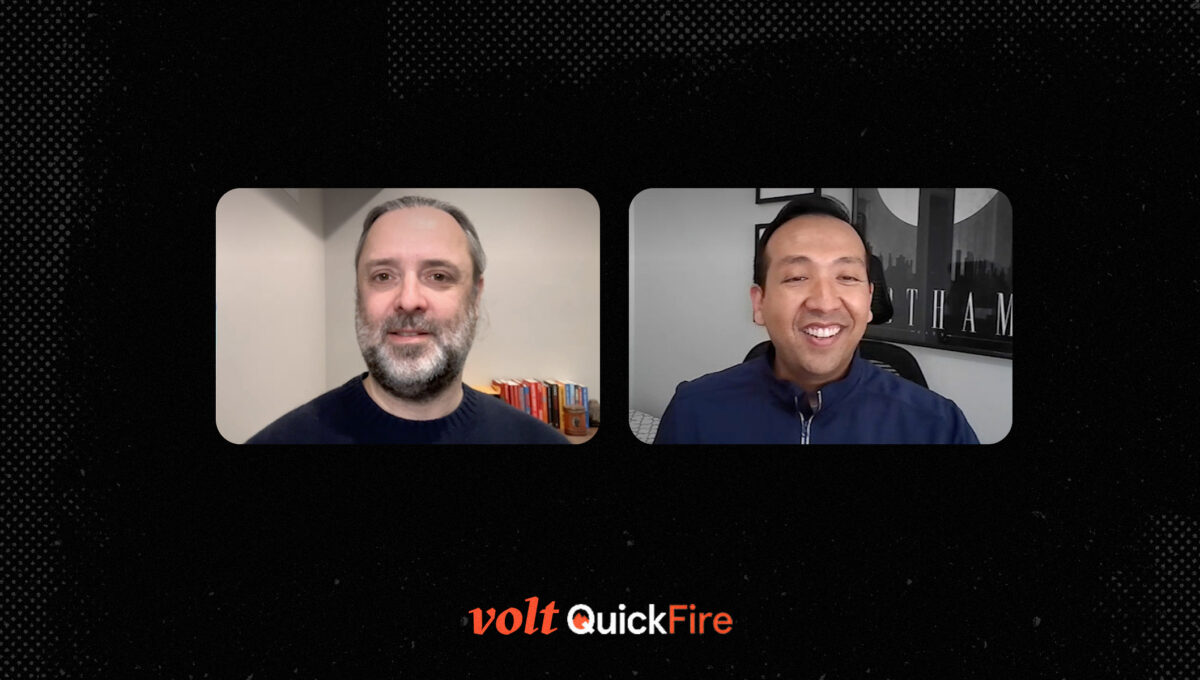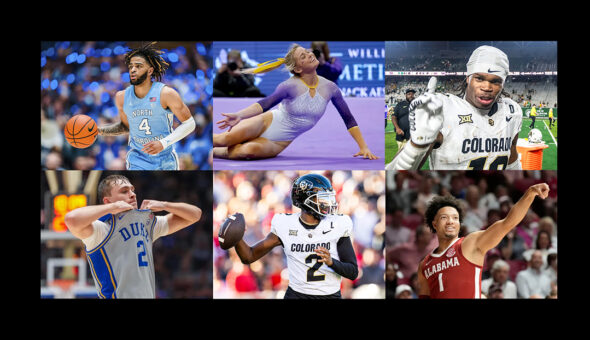Southern New Hampshire University was far ahead of the digital curve, offering online courses to its students well before the majority of institutions who began doing so in 2020. The school has a physical location that hosts some 3,000 students, but its online student body boasts over 135,000 learners taking advantage of over 200 degree offerings. And as more colleges and universities create online courses and degree programs, SNHU continues to be a model for success.
Volt Publisher Kevin Renton sat down with Sam Mahra, SNHU’s assistant vice president of student experience marketing communications to discuss what’s working in higher education and higher ed marketing, what’s not, what the future holds for higher education, and what makes him tick.
Related: QuickFire with Purdue University’s R. Ethan Braden
Read the full transcript here
Kevin:
Hi there. My name’s Kevin and welcome to Quickfire from Volt. This is where we put higher education marketers on the hot seat and subjective them to 20 rapid questions to find out what makes them tick, what makes it successful, and what are their goals for the future. In this crossfire today we have Sam Mahra, Assistant Vice President of Student Experience, Marketing, and Communications at Southern New Hampshire University. Welcome, Sam, but off the bat, tell us about yourself and what you do at Southern New Hampshire.
Sam Mahra:
Kevin, just wanted to say thank you again for the opportunity. As the Assistant VP of Student Marketing and Experience and Communications, I actually previously worked at SNHU from 2006 of 2013, and since being at SNHU over a month since returning, I’ve had the privilege, working with a great team that oversees a wide variety of student and staff communications, that includes social media and portal content for SNHU’s Global Campus. I’m just really happy to be part of a innovative institution that’s reinventing higher education and in a way that it meets today’s students needs and workforce needs, and my prior experience really revolved around enrollment management and enrollment marketing.
Kevin:
Great. Okay. Here we go. I wanted to work in higher education because?
Sam Mahra:
I think the main impetus for me to work in higher education was to really make a difference in people’s lives and just share the transformative impact of pursuing a degree or credential could have on their life.
Kevin:
The marketing tool I can’t live without is?
Sam Mahra:
I would say it’s Workfront to keep track of all of our projects and collaborations that go across multiple stakeholders.
Kevin:
In the next five years, I’d like to?
Sam Mahra:
In the next five years, I’d like to help SNHU continue to deliver a best in class student experience that positively impacts our student and our student persistence and student success.
Kevin:
My biggest professional mistake was?
Sam Mahra:
Yeah, I think there were times early in my career, I had the mentality that if you wanted to do something, get it done right, you have to do it yourself. I think as I’ve matured in my career, I didn’t realize how this could really hinder my team from reaching their potential. So I’ve learned that it’s better to challenge the team, to take it upon themselves, to perform better each time, and working alongside that process for facilitation and guidance.
Kevin:
When I’m not working I’m?
Sam Mahra:
I enjoy spending time with my family, catching up with friends, and consider myself a foodie. I enjoy checking out a wide variety of new restaurants and dining experiences where I live in metro Atlanta.
Kevin:
Yeah, you’re going to have to come to Philadelphia. I start my day at?
Sam Mahra:
I usually start between 6:00 and 7:00 AM just taking time to reflect on my goals and intentions for the day. A great cup of coffee also helps.
Kevin:
The secret to student succeeding at my school is?
Sam Mahra:
I think the biggest challenge facing higher education markets are staying competitive in a rapidly changing and complex higher education landscape while effectively communicating in a context that’s unique to the value of their institution and also to a diverse student body. I definitely think there’s colleges and universities out there who do it well and others who really struggle at it.
Kevin:
My favorite social media channel is, and why?
Sam Mahra:
My favorite social media channel is I found myself spending more time on LinkedIn, and I think that higher ed marketers and professionals forget there’s still value out there in terms of exchanging best practices, evaluating trends, and looking for thought leadership. I’ve definitely learned a network from many people on the platform.
Kevin:
My biggest professional achievement is?
Sam Mahra:
I think my biggest professional achievements revolve around working with teams to leverage and implement a wide variety of technology solutions to scale communications, whether it’s driving student recruitment, retention, progression of graduation, for example, I’ve had opportunities throughout my career to reboot communication plans, established data hygiene processes with CRMs, and I’ve also led chat bot implementations.
Kevin:
Cool. What’s working in higher ed right now is?
Sam Mahra:
I think what’s working is that the pandemic has accelerated the adoption of online and hybrid learning models, which offer greater flexibility and accessibility for students. I definitely think it’s great to been great to hear how institutions have further invested in the technology and infrastructure to really support engagement and assessment strategies.
Kevin:
What’s not working in higher ed right now?
Sam Mahra:
I would say content bloat and digital fatigue. With the explosion of social media, blogs, podcasts, videos, and other platforms, I think there are too many streams of content available at our fingertips, and sometimes institutions don’t know how to effectively use them. I think it really could make it difficult to filter out what’s relevant, useful and might lead to the feeling of people being overwhelmed or bogged down by the sheer volume of content. So I think kind of setting the boundaries and setting priorities of quality over quantity is probably the better approach to go.
Kevin:
The future of higher education will be?
Sam Mahra:
I think it’s going to revolve around a couple things. I think the first thing is digital transformation. We’ll still continue to see that accelerate with things like ChatGPT and technology playing a critical role with schools using new digital tools to enhance the experience and facilitate learning. This is probably going to include increased conduct of online learning models and more increased use of data analytics, and also understanding that the future of higher education is seeing the student as a lifelong learner. I think as the workforce evolves and requirements change, there’ll be a growing need for ongoing education and upskilling.
Kevin:
Cool. The key to my success has been?
Sam Mahra:
The key to my success has been having a great team and exceptional leadership. I know it’s inspired me to have a growth mindset and willingness to learn new things. It’s also helped me acquire several great skills and knowledge, which have been critical to my success.
Kevin:
One thing I’ve learned about managing a team is?
Sam Mahra:
One thing I’ve learned about managing a team is that you must have empathy and strive to practice sound emotional intelligence. I think people are shaped by our, in general, people you supervise are shaped by their strengths, their beliefs, their emotions, motivations and experiences, and having that self-awareness is what makes your team function. Understanding what makes your team function is immensely helpful.
Kevin:
Cool. The hardest part of my job is?
Sam Mahra:
I think the hardest part of my job is managing complexity. I think there are times when we’re dealing with so many stakeholders in the work that we do, and we have to ensure the right messages are going out to the appropriate student segment at the right time and the right channel, and that could involve a series of discovery meetings, scoping out projects, and determining resource capacity.
Kevin:
I love my job because?
Sam Mahra:
I think that’s demonstrated in our culture to really drive an exceptional student experience.
Kevin:
Great. Thanks for being with us this afternoon, Sam, and thanks for answering the questions. I look forward to following your success going forward.
Sam Mahra:
Thank you, Kevin. I appreciate the opportunity.








